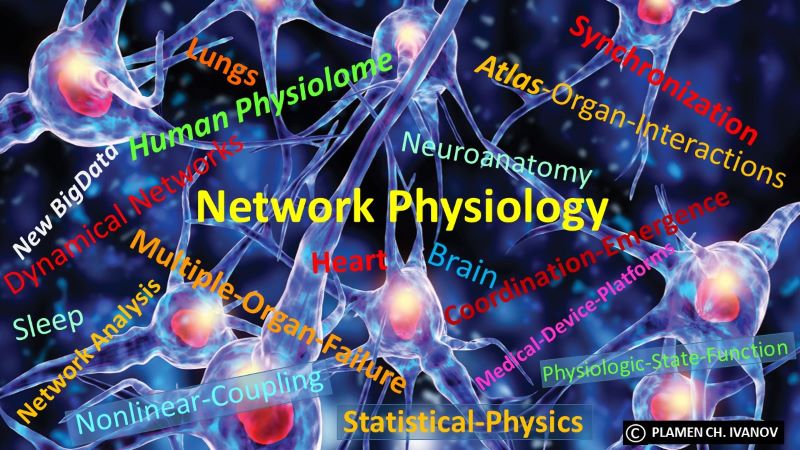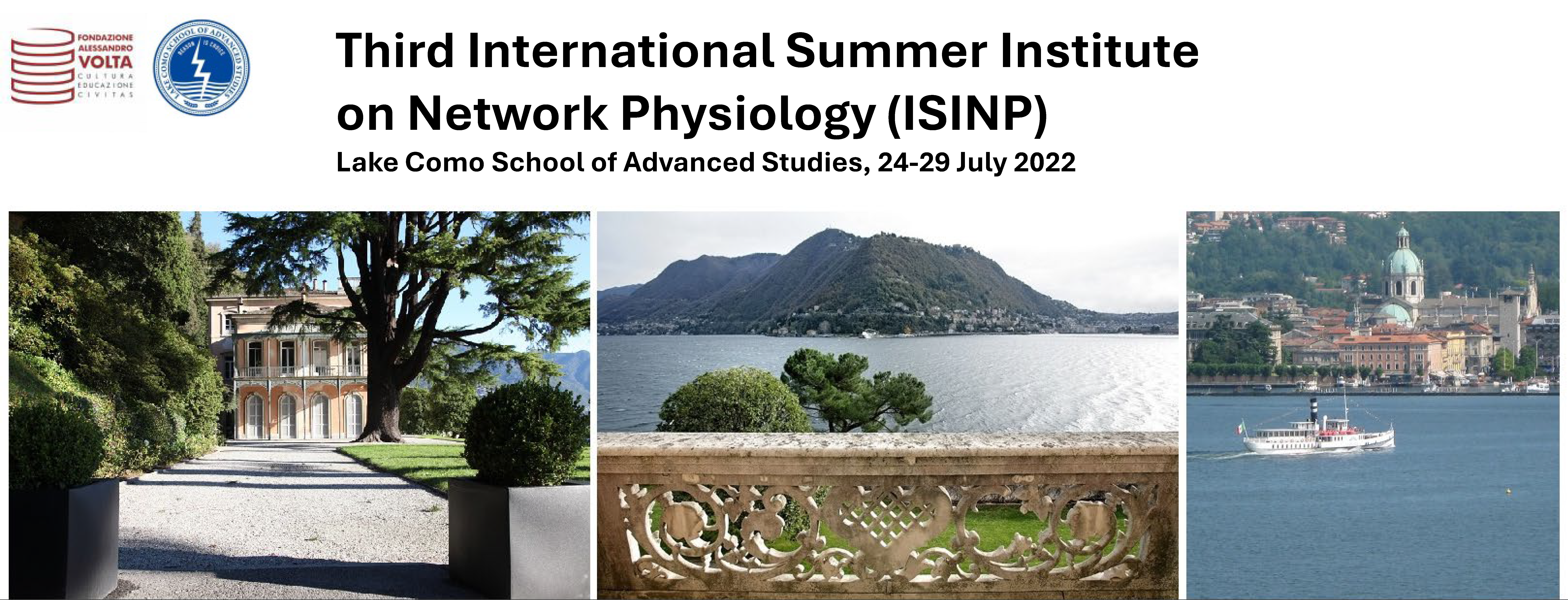Speakers
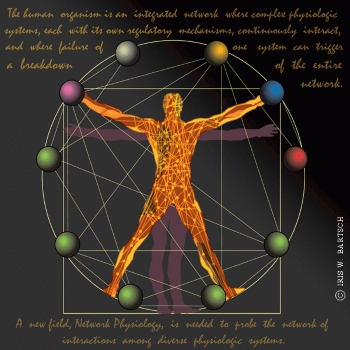
ISINP-2022 is supported by:


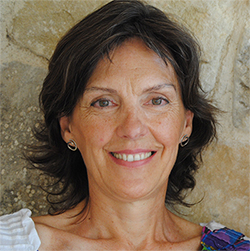
Professor of Exercise Physiology at INEFC (University of Barcelona) and coordinator of the Complex Systems and Sport Research Group. She participates in education programs addressed to professional soccer coaches under the auspices of Football Club Barcelona and the Spanish Soccer Federation. Her research applies complex systems tools to biobehavioural sciences with particular focus on sport related phenomena. Her main aim is to understand the general principles of adaptive behavioral and experiential dynamics of human beings. She has published numerous works and is co-author of the first books applying complex systems science to sport. She founded the international conference Complex Systems in Sport, has been member of the scientific committee of the European College of Sport Science and is Editor-in-chief of Frontiers in Network Physiology of Exercise.
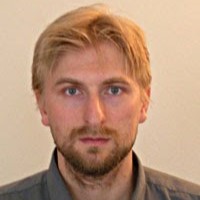
Ronny P. Bartsch
Dr. Bartsch studied physics in Konstanz, Germany where he received a M.Sc. degree in theoretical physics in July 2003, and at Bar-llan University, Israel where he received his PhD in June 2009. He was a post-doctoral fellow at the Division of Sleep Medicine, Harvard Medical School from 2008 till 2012, after which he joined the faculty at the same division as an Instructor in Medicine. In April 2014, Dr. Bartsch joined the Physics Department at Boston University as a Research Assistant Professor, Currently he is a Senior Lecturer at the Physics Department, Bar-Ilan University. Dr. Bartsch applies methods from statistical and computational physics and nonlinear dynamics to study physiologic systems, sleep regulation, circadian rhythms, and how physiologic transitions affect coupling between organ systems. He is recipient of the prestigious German DAAD Fellowship for the period 2010-2012. In 2012 he was awarded the Young Investigator of the Year Prize by the German Society of Sleep Medicine, and in 2014 he won a “Marie Curie” fellowship from the European Commission.

Barbara E. Corkey
Barbara E. Corkey has been the Zoltan Kohn Professor of Medicine and Vice Chair for Research in the Department of Medicine at Boston University. Dr. Corkey has been a leader in the fields of diabetes and obesity research for over 50 years with over 180 related publications and 40 years of continuous government research support. The Corkey laboratory is in engaged in research on obesity and diabetes, with a particular focus on metabolic signal transduction in ß-cells, adipocytes and hepatocytes, intercellular communication via circulating redox and the role of hyperinsulinemia in obesity and diabetes. Projects in metabolic regulation have been ongoing since 1981 using such techniques as single cell imaging, metabolic profiling, ionic fluxes and membrane potential, respiration, redox state, reactive oxygen species generation and diet-induced obesity and diabetes models. She does seminal work on the molecular basis of nutrient signaling that has a major impact on our current understanding of health and disease. Finally, Barbara has received numerous honors including the NIH MERIT Award, National Honorary Membership in lota Sigma Pi, the National Honor Society of Women in Chemistry, Women in Science Lecturer at the Boston Museum of Science, the George Bray Founders Award of the Obesity Society, the Charles H. Best Lectureship and Award, University of Toronto and the Banting Medal for Scientific Achievement from the American Diabetes Association. A current major focus is on developing clinical/basic collaborative multi-PI grants to explore novel approaches to understand and treat metabolic diseases.

Marina de Tommaso
Marina de Tommaso is Professor of Neurology at the Psychiatric and Neurologic Sciences Department of the Bari University, head of the Applied Neurophysiology and Pain Unit. She graduated in Medicine in1982, specialised in Neurology in 1986 and in Phisioterapy in 1993 with full marks cum laude at Bari University. In 1994 she received the title of research Doctor in Human Relational Sciences. From 1995 to 2005 she has been Researcher in Neurology. Since 2008 she is the coordinator of the diploma in neurophysiopathology tecniques. She is the Head of the regional referral Center for Huntington’s disease and Neuropathic Pain. She is Editor of BMC Neurology and Pain Research and treatment and Associate editor of Journalheadache and Pain journals. She is the President of the Italian Psychophysiology and CognitiveNeuroscience Society. She is author of 170 publications in extenso, concerning the field of Clinical and Applied Neurophysiology, Clinical Neurology, Migraine, Fibromyalgia, Huntington’s disease, Sheis responsible for more than 20 funded projects from private and public committees (European Commission, Italian Research Ministry, CHDI foundation)
Recent studies http://www.ncbi.nlm.nih.gov/pubmed/?term=de+tommaso+m
Luca Faes
Luca Faes is Professor of Biomedical Engineering at the University of Palermo, Italy. He obtained his MS and PhD in Electronic Engineering at the University of Padova (1998) and at the University of Trento (2003), Italy, respectively. He was with the Dept. of Physics (2004-2013) and the BIOtech Center (2008-2013) of the University of Trento, and with the Bruno Kessler Foundation (FBK, Trento, 2013-2017). He has been visiting scientist at the State University of New York (2007), Worcester Polytechnic Institute (MA, USA, 2010), University of Gent (Belgium, 2013), University of Minas Gerais (Brazil, 2015), and Boston University (MA, USA, 2016). He is Senior Member of the IEEE, and member of the IEEE Engineering in Medicine and Biology Society (IEEE-EMBS), for which he serves in the Technical Committee of Biomedical Signal Processing and regularly organizes symposia and invited sessions at the Annual EMBC Conference. He is member of the European Study Group on Cardiovascular Oscillations (ESGCO), and was organizer and Program Chair of the 8th ESGCO conference (Trento, Italy, 2014). He is Specialty Chief Editor of the Section “Information Theory” of Frontiers in Network Physiology, and serves as editor at several peer-review journals, including Entropy, Frontiers in Physiology, and Computational and Mathematical Methods in Medicine. His teaching activity includes Biosensors, Biomedical Devices and Statistical Analysis of Biomedical Signals: His research activity is focused on the development of methods for multivariate time series analysis and system modeling, with applications to cardiovascular neuroscience, cardiac arrhythmias, brain connectivity and network physiology. Within these fields, he has authored eight book chapters and more than 200 peer-reviewed publications, receiving more than 5700 citations (h-index: 44; font: Scholar).
Charles C. Hardin
C. Corey Hardin M.D., Ph.D. is assistant professor of medicine at Harvard Medical School and staff physician in Pulmonary and Critical Care Medicine at Massachusetts General Hospital (MGH). Dr. Hardin completed his Ph.D. in Biophysics working in the laboratory of Prof. Peter Wolynes, studying the prediction of protein structure from sequence using Hopfield neural networks. He completed an internship and residency in internal medicine at MGH and did his clinical training in Pulmonary and Critical Care Medicine in the Harvard Combined Program. His current work centers around the physiology of critical illness and, in particular, the mathematical modeling of septic shock and the acute respiratory distress syndrome (ARDS). Dr. Hardin also serves as an editor at the New England Journal of Medicine and at NEJM Evidence.
Shlomo Havlin
Professor Shlomo Havlin made fundamental contributions to the physics of complex systems and statistical physics. These discoveries have impacted many other fields such as medicine, biology, geophysics, and more. He has over 60,000 citations on ISI Web of Science and over 100,000 in Google Scholar. His h-index is 111 (140) in Web of Science (Google Scholar). Havlin has been a Highly Cited Scientist in the last 3 years.He is a professor in the Physics Department at Bar-llan University. He received his Ph.D. in 1972 from Bar llan University and he has been a professor at BIU since 1984. Also, between the years of 1999 – 2001 he was the Dean of the Faculty of Exact Sciences and from 1996 to 1999 he was the President of the Israel Physical Society. Havlin won the Israel prize in Physics (2018), Order of the Star of Italy, President of Italy (2017), the Rothschild Prize for Physical and Chemical Sciences, Israel (2014), the Lilienfeld Prize for “a most outstanding contribution to physics”, APS, USA (2010), the Humboldt Senior Award, Germany (2006), the Distinguished Scientist Award, Chinese Academy of Sciences (2017), the Weizmann Prize for Exact Sciences, Israel (2009), the Nicholson Medal, American Physical Society, USA (2006) and many others. His main research interests are in the field of statistical physics and complex networks, with a focus on interdependent networks, cascading failures, networks of networks and their implications to real world problems. The real-world systems he studied include physiology, climate, infrastructures, finance, traffic, earthquakes and others.
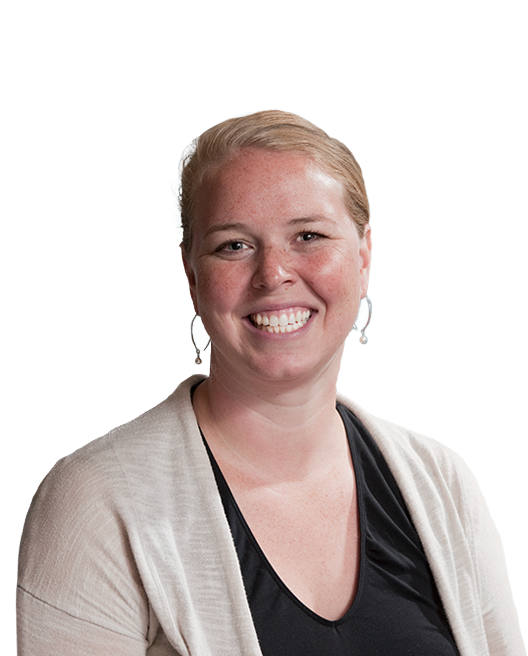
Kathryn A. Hibbert
Kathryn A. Hibbert is a Pulmonary and Critical Care physician at Massachusetts General Hospital(MGH), where she also serves as the director of the Medical Intensive Care Unit. She received her MD degree from Mount Sinai School of Medicine before residency training in Internal Medicine at MGH and serving as a Chief Resident in Medicine. She completed her fellowship in the Harvard Pulmonary and Critical Care Fellowship. Her early research focused on translational ARDS research using functional PET-CT imaging to better understand regional pathophysiology. She now runs a critical care clinical research program that includes serving as the site principal investigator for the PETAL network at MGH and a project that examines the novel use of metabolomics to identify drug resistant pneumonia. In addition, she is a course director for the Harvard Medical School Health Sciences & Technology curriculum, serves as the Critical Core Educator for the Department of Medicine at MGH and has developed a novel advanced physiology course for internal medicine residents. She has won multiple teaching awards and serves as the Associate Program Director for the Harvard Pulmonary and Critical Care Fellowship.
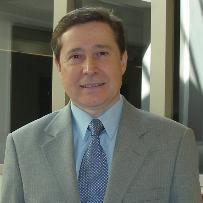
Plamen Ch. Ivanov
Professor Ivanov, PhD, DSc, is Director of the Keck Laboratory for Network Physiology at Boston University, and Associate Physiologist at the Division of Sleep Medicine, Brigham and Women’s Hospital, Harvard Medical School. He has introduced innovative ways of analyzing and modeling physiologic systems, adapting and developing concepts and methods from modern statistical physics and nonlinear dynamics. He has investigated the complex dynamics and underlying control mechanisms of a range of physiological systems, including studies on cardiac and respiratory dynamics, sleep-stage transitions, circadian rhythms, locomotion and brain dynamics, and has uncovered basic laws of physiologic regulation. He is the originator and founder of the new emerging field of Network Physiology, to address the fundamental question of how diverse organ systems and sub-systems in the human body interact as a network and continuously coordinate, synchronize and integrate their functions to produce health and disease. Dr. Ivanov is one of the nine founding members of PhysioNet, an NIH sponsored data sharing research resource. His research has been funded by the W. M. Keck Foundation, NIH, Office of Naval Research (ONR) and the US-Israel Binational Science Foundation (BSF). For his achievements, Dr. Ivanov was elected Fellow of the American Physical Society in 2010. He is recipient of the Sustained Research Excellence Award (2009-2011) of the Biomedical Research Institute, Brigham and Women’s Hospital, Harvard Medical School; of the Georgi Nadjakov Medal, Bulgarian Academy of Sciences (2012), and of the Pythagoras Award for significant achievements in interdisciplinary research (2014). He served on several Editorial and Advisory Boards, including EPL (Europhysics Letters), EPJ Nonlinear Biomedical Physics, Journal of Biological Physics (JOBP), Frontiers in Fractal Physiology, Physiological Measurement. Professor Ivanov is the Field Chief Editor of the journal Frontiers in Network Physiology. He is the founding Director of the International Summer Institute on Network Physiology (ISINP), Lake Como School of Advanced Study.
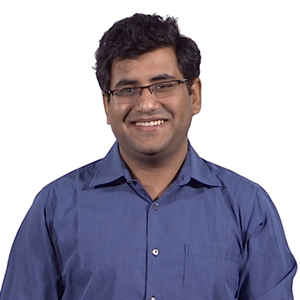
Mohit Kumar Jolly
Mohit Kumar Jolly is an Assistant Professor at Indian Institute of Science where he leads the Cancer Systems Biology research group. He obtained his Ph.D. from Rice University and was a Gulf Coast Consortia Postdoctoral Fellow jointly at Rice University and MD Anderson Cancer Center. He currently co-chairs the Mathematical Oncology subgroup at Society for Mathematical Biology (SMB) and serves as an Associate Editor at Computational and Systems Oncology (Wiley). His work in decoding the nonlinear dynamics of cancer metastasis and therapy resistance using mathematical modeling has elucidated fundamental design principles for underlying regulatory networks driving cancer progression as well as identified new therapeutic strategies to delay the emergence of drug resistance. His contributions to network physiology include decoding how large and complex regulatory networks converge to only a limited number of phenotypes/cell-states, as well as understanding how cellular networks driving various axes of metastatic fitness (drug resistance, immune evasion, tumorinitiation etc.) are coupled with one another to drive coordinate changes in cellular plasticity and heterogeneity. He won the iBiology 2016 Young Scientist Seminar Series – a prestigious award to communicate one’s work to diverse audience, and was recently included in top 2% of systems biology researchers (Elsevier/Stanford Univ list 2021).

Jürgen Kurths
Jürgen Kurths studied mathematics at the University of Rostock and got his PhD in 1983 at the GDR Academy of Sciences and his Dr. habil. in 1990. He was full Professor at the University of Potsdam from 1994-2008 and has been Professor of Nonlinear Dynamics at the Humboldt University, Berlin and chair of the research domain Transdisciplinary Concepts of the Potsdam Institute for Climate Impact Research since 2008 and a 6th century chair at the Institute for Complex Systems and Mathematical Biology at Kings College of the Aberdeen University (UK) 2009-2017. He is a fellow of the American Physical Society and is a member of the Academia Europaea. He got an Alexander von Humboldt research award and a 1000 Talents award for foreign experts from China and was awarded the L.F. Richardson Medal of the European Geosciences Union. He got several Honory Doctorates and Honorary Professors. He was a Burgers Visiting Professor at University of Maryland and is a Chapman Professor at the University of Alaska (Fairbanks). Jürgen has supervised more than 75 PhD students from about 20 countries; more than 40 of them have now tenured positions in various countries. He has published more than 650 papers in peer-reviewed journals and two monographs which are cited more than 35.000 times (H-index: 85). He is editor-in-chief of the AIP journal CHAOS and is in the editorial board of more than further 10 journals. His main research interests are complex synchronization phenomena, complex networks, time series analysis and their applications in neuroscience and physiology. He works on inferring complex networks from spatio-temporal data in neuroscience to characterize the underlying dynamics and to get new kinds of predictions of extreme events, such as episodes of migraine. Moreover, he is developing multilayer neural networks with time delay to model brain activity, in particular cognitive processes. Another main direction is to develop measures of causality and their applications to physiological signals. He coordinated several large projects in EU and DFG and is now speaker of an International Research Training Group on complex networks (DFG and Brazil), of a Megagrant on inferring models from climate spatio-temporal data (Russia) and of a joint project on collective nonlinear dynamics of complex power grids (BMBF, Germany).
Klaus Lehnertz
Professor Lehnertz, PhD, is a Physicist and Director of the Neurophysics Group at the Department of Epileptology at Bonn University Medical Center. In addition, he is Co-Director of the Interdisciplinary Centre for Complex Systems and an affiliated member of the Helmholtz-Institute for Radiation and Nuclear Physics at Bonn University. He is Co-initiator of the International Seizure Prediction Group, which brings together researchers from a wide range of backgrounds including epileptology, neurosurgery, neurosciences, physics, mathematics, computer science, and engineering to deepen scientific and medical understanding of epilepsy and to develop new diagnosis, treatment and intervention options for patients with epilepsy. For more than two decades, his research group has been developing methods of data analysis and a theoretical framework to understand how brain sub-systems dynamically interact and coordinate functions under physiological and pathophysiological activities. His research interests include nonlinear dynamics, complex networks, statistical physics, neurophysics, computational physics, physics of imaging, medical physics, and epilepsy. He is the author of more than 200 original publications in international peer-reviewed journals, reviews, book chapters,
and books.
Andre Longtin
Andre Longtin is Professor of Physics at the University of Ottawa, where he runs the Neurophysics and Nonlinear Dynamics Group. He is also co-founder and co-director of the uOttawa Centre for Neural Dynamics. His interests lie at the interface of nonlinear dynamics, statistical physics, biology and medicine. He seeks physical principles of brain function as well as the origin and role of randomness in neural and other physiological systems, and studies the properties of stochastic nonlinear systems, especially those with adaptation, memory, delays and plasticity. He received an honors B.Sc. Physics in 1983 and an M.Sc. Physics in 1985 from the Université de Montréal, and a Ph.D. Physics from McGill University in 1989 co-supervised by Michael Mackey and John Milton. He then joined Los Alamos National Laboratory for two years, both as a Natural Sciences and Engineering Research Council of Canada Postdoctoral Fellow and a Los Alamos Director’s Funded Postdoctoral Fellow. He held a joint position in the Theoretical Division T13 (Complex Systems) and the Center for Nonlinear Studies. He began as assistant professor of Physics in 1992 at the University of Ottawa. He is now Professor since 2002, and cross-appointed to the Department of Cellular and Molecular Medicine in the Faculty of Medicine, and Mathematics and Statistics. He is on the editorial board of Biological Cybernetics, Cognitive Neurodynamics, Bulletin of Mathematical Biology, Mathematical Neuroscience and Applications, Entropy, Frontiers in Computational Neuroscience, Frontiers in Applied Mathematics and Statistics, and Mathematical Biosciences and Engineering. He is a Fellow of the American Physical Society, was awarded a senior Humboldt Research Prize in Germany in 2010 as well as Canada’s NSERC Brockhouse Prize for Interdisciplinary Research with Len Maler in 2017. He has been a visiting professor at Humboldt U. Berlin, EPFL and TU Munich. He collaborates very closely with neurobiologists and clinicians.
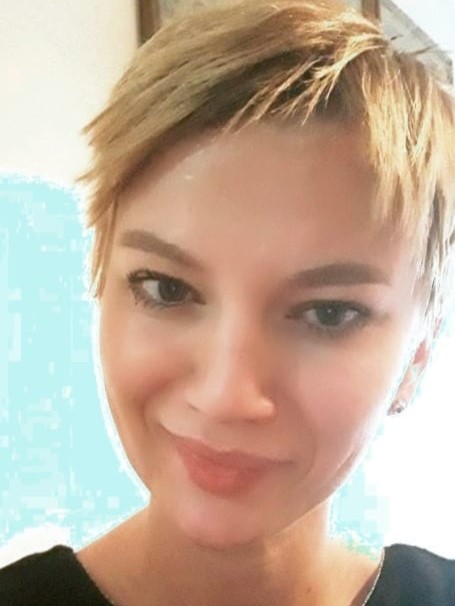
Gorana Mijatovic
Gorana Mijatovic received B.Sc. degree and M.Sc. degree in Electrical engineering in 2009, 2010, and the Ph.D. degree in Electrical Engineering in 2018, form the University of Novi Sad, Serbia. Her current position is Assistant Professor at Department of power, electronics and telecommunications of Faculty of Technical Sciences (FTS), University of Novi Sad (UNS), Serbia. Her teaching activity regards fundamentals of electrical engineering. Her research activity includes computational neuroscience, complex systems, non-linear dynamics, network dynamics, synchronization, and electromagnetic fields. Within this fields, she has authored more than 70 journal and conference publications. She was rewarded with the annual award of the Department of power, electronics and telecommunications (FTS, UNS) as the teacher with the highest number of journal scientific publications in 2021, as well as with the annual award “Dr Zoran Djindjic” for the best young scientist and researcher in 2021, autonomous province of Vojvodina, Serbia. In 2022, she received an award for the best-graded professor at the Faculty of Technical Sciences. She is review editor in Frontiers in Physiology (Fractal Physiology) and Frontiers in Network Physiology (Fractal Physiology). She is also member of the IEEE, and of the CEVAS (Centre of Excellence for Vibro-Acoustic Systems and Signal Processing) and ICONIC (Center for Intelligent Communications, Networking and Information Processing) centers associated to the FTS, UNS. She is currently participant of the project H2020 INCISIVE (A multimodal Al-based toolbox and an interoperable health imaging repository for the empowerment of imaging analysis related to the diagnosis, prediction and follow-up of cancer), and of the COST action (CA19136 NET4AGE friendly, international interdisciplinary network on smart healthy age-friendly environments)

J. Randall Moorman
Randall Moorman, M.D., is Professor of Medicine, Physiology, and Biomedical Engineering at the University of Virginia where he is a clinical cardiologist and founding Director of the UVa Center for Advanced Medical Analytics. He completed his undergraduate and medical degrees at the University of Mississippi, did clinical training at Duke Hospital where he was Chief Medical Resident, and undertook basic science research training at Baylor in molecular electrophysiology and membrane biophysics. His research focuses on bedside prediction of subacute, potentially catastrophic illnesses using advanced mathematical and statistical pattern recognition analyses of time series data from clinical monitors. His work initially centered on neonatal sepsis, a life-threatening infection of the bloodstream, and now on adult patient deterioration in ICUs and hospital wards. He developed sample entropy for use in physiological time series, and he introduced coefficient of sample entropy for detection of atrial fibrillation. He is an inventor on 9 issued US patents, the 2014 UVa Innovator of the Year, and Chief Medical Officer of Advanced Medical Predictive Devices, Diagnostics, and Displays. He is vice-president of the Society for Complex Acute Illness and Editor-in-Chief of Physiological Measurement.
Ulrich Parlitz
Ulrich Parlitz is a research scientist at the Max Planck Institute for Dynamics and Self-Organization, Göttingen (Germany) and an adjunct professor of Physics at the University of Gottingen. He received his PhD in 1987 at the University of Gottingen. From 1989 to 1994 he was with the Institute for Applied Physics at the Technical University of Darmstadt, Germany, and in 1994 he became a scientific assistant at the Third Institute of Physics of the University of Gottingen where received his habilitation in 1997. His main research areas are nonlinear dynamics and data analysis with applications in life sciences, nonlinear oscillators, networks, cavitation, and laser dynamics. In 2010 Ulrich Parlitz joined the Research Group Biomedical Physics at the Max Planck Institute for Dynamics and Self-Organization. There he is involved in theoretical and experimental studies for understanding the nonlinear dynamics of the heart focusing on cardiac arrhythmias. This research includes numerical studies of (transient) spatio-temporal chaos in excitable media and the application of data assimilation methods for fusing experimental measurements (e.g., multichannel ECG time series) with mathematical models of electro-mechanical excitation waves in cardiac tissue. Ulrich Parlitz has published over 170 peer-review publications, including 13 papers in Physical Review Letters. He serves as a panel member of the German Science Foundation (DFG) for Statistical Physics, Soft Matter, Biological Physics and Nonlinear Dynamics, and he is member of the Editorial Board of Frontiers in Applied Mathematics and Statistics (Dynamical Systems) and the Editorial Advisory Board of Chaos: Int. J. of Nonlinear Science.
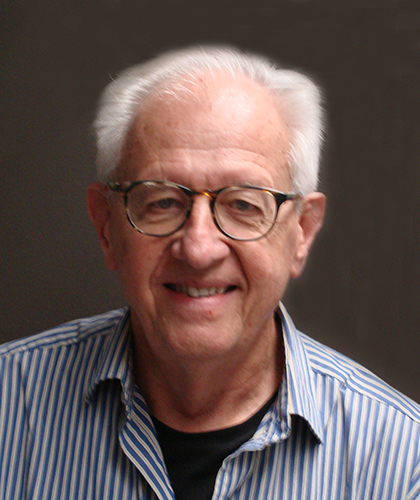
Louis M. Pecora
Dr. Pecora is currently a research physicist at the Naval Research Laboratory, Washington, DC, where he heads the section for Magnetic Materials and Nonlinear Dynamics in the Materials and Sensors branch. He received his B.S. degree in physics from Wilkes College and he then enrolled in the Syracuse University Solid State Science program from which he received a Ph.D. in 1977. In the same year, he was awarded an NRC post-doctoral fellowship at the Naval Research Laboratory where he worked on applications of positron annihilation techniques in determining electronic states in copper alloys. This led to a permanent position at NRL. In the mid-1980s Dr. Pecora moved into the field of nonlinear dynamics in solid state systems. Subsequent work has focused on the applications of chaotic behavior, especially the effects of driving systems with chaotic signals and coupling nonlinear dynamical systems in complex networks. This has resulted in the discovery of synchronization of chaotic systems, control and tracking, and dynamics of many coupled, nonlinear systems. Recently his research interests have turned to quantum chaos and collective behavior of oscillators in large complex networks, especially using the techniques of computational group theory. Dr. Pecora has published over 150 scientific papers and has 5 US patents for the applications of chaos. His original paper on the synchronization of chaotic systems has over 7000 (ISI) citations and is the 10th most cited paper ever in Physical Review Letters. In 1995 he received the Sigma Xi award for Pure Science for the study of synchronization in chaotic systems. He is also a Fellow of the American Physical Society (APS) and of the American Association for the Advancement of Science (AAAS).

Alberto Porta
Professor Alberto Porta received MS degree in Electronic Engineering at Politecnico di Milano, Milan, Italy in 1989. He was a Research Fellow on Automatic Control and System Theory at the Department of Electronics for Automation, Università degli Studi di Brescia, Brescia, Italy until 1994. He received his PhD degree in Biomedical Engineering at Politecnico di Milano, Milan, Italy in 1999. Since 1999 he has been with Università degli Studi di Milano, Milan, Italy where he became Researcher in Biomedical Engineering in 2005, Associate Professor in 2011 and Full Professor in 2017. Since 2006 he has been teaching Medical Physics, since 2007 Applied Medical Statistics and since 2011 Bioengineering at Università degli Studi di Milano, Milan, Italy. He is referee of several intemational journals in the fields of Computational Biology, Biomedical Engineering, Biological Cybernetics, Bioinformatics, Applied Physics and Statistics, Physiology, Clinical Cardiology and Neurosciences. Since 2007 he has been Associate Editor of the International Conference of the IEEE Engineering in Medicine and Biology Society (Theme 1: Biomedical Signal Processing). He is Senior member of the IEEE since 2020. He is currently member of the board of American Journal of Physiology (Regulatory, Integrative and Comparative Physiology), Autonomic Neuroscience: Basic and Clinical, Clinical Autonomic Research, European Physical Journal Nonlinear Biomedical Physics, Physiological Measurement, Entropy, and Frontiers in Fractal Physiology and Associate Editor of Medical & Biomedical Engineering & Computing, Frontiers in Autonomic Neuroscience and Frontiers in Networks in the Cardiovascular System. Since 2012 he has been the President of the European Study Group on Cardiovascular Oscillations. His primary interests include time series analysis, biomedical signal processing, spectral analysis, quantification of complexity, entropy, causality, prediction, symbolic analysis, nonlinear dynamics, biological cybernetics, system identification and modeling. Applications are mainly focused on cardiovascular system, cardiovascular regulatory mechanisms, cerebrovascular autoregulation and autonomic neuroscience. He is author of 299 papers published on peer-review international journals. His current H-index is 61 (source: Scopus). Complete list of publications can be found at the Scopus ID: 7005322848.
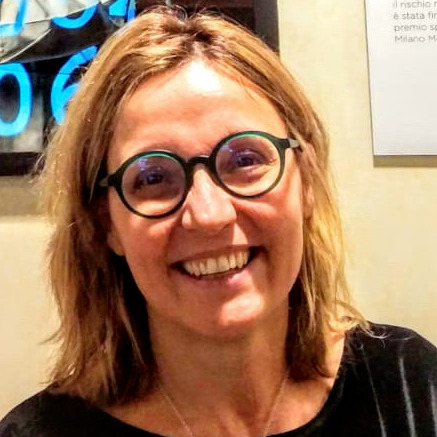
Caterina A. M. La Porta
Caterina La Porta is professor of General Pathology at the University of Milan where she coordinates the research group Oncolab and is member of the steering committee of the Center for Complexity and Biosystems. In 2018, she co-founded the startup ComplexData where she serves as CEO. During her scientific career, Prof. La Porta published more than 200 papers in international journals mainly on cancer and neurodegenerative diseases, receiving thousands of citations. In the past 15 years, she shifted her interest to quantitative biology and digital health. The focus of her current research activity focuses on understanding cancer heterogeneity using tools from cell biology, biophysics and data science. Her interdisciplinary view of cancer is summarized in a book published by Cambridge University Press in 2017 entitled “The Physics of Cancer”. Prof. La Porta was selected as one of the 100 most important female scientists in Italy (https://100esperte.it/) and was visiting scientist in many universities around the world, including MIT, Cornell University, Aalto University, Rice University, the ENS Paris, the Weizmann Institute of Science and LMU in Germany. Prof. La Porta has a long track record of public outreach activities, including the organization of several editions of the EU Researcher’s night, and is involved in many other science dissemination activities.

Caterina Da Re
Caterina joined Frontiers in 2017 after completing her PhD in Genetic and Molecular Biology of Development. She is currently Head of Publishing Program at the leading open access publisher Frontiers, she currently handles a group of journals within the Biosciences, Humanities & Social Sciences and Sustainability programs. She manages a portfolio of 33 journals, overseeing an editorial team of over 150 publishing, based at the different company’s locations (Lausanne, London, Beijing and Seattle). She develops and coordinates projects, supervising cross-functional stakeholders through refined internal communication. Prior to this, Caterina was a geneticist primarily interested in mitochondrial disorders.
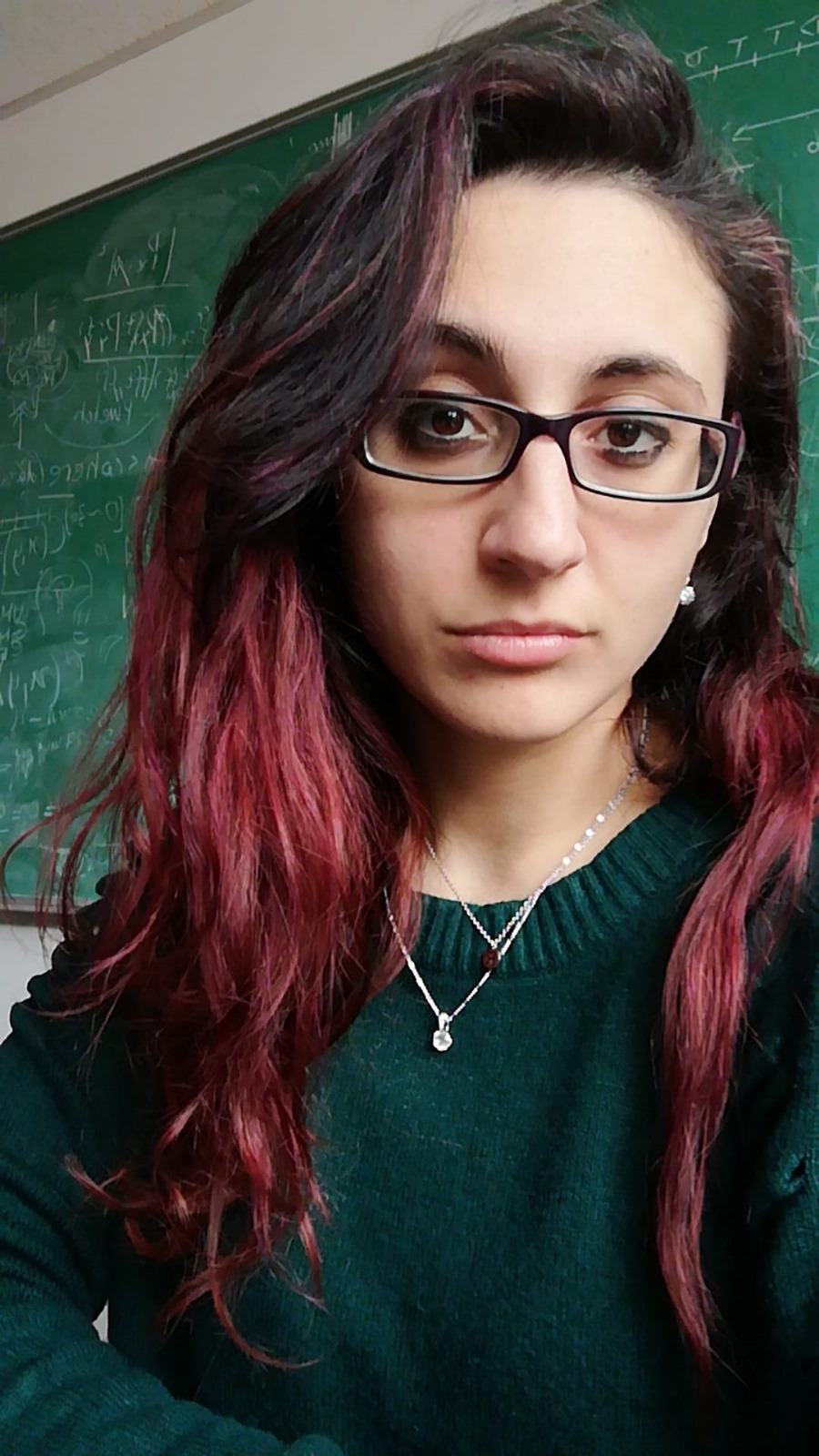
Rossella Rizzo
Rossella Rizzo is a mathematician and assistant professor in Applied Mathematics at the Department of Engineering, University of Palermo, Italy, awarding a grant on European Funds. She currently works on Turing instability and pattern formation for reaction-diffusion (RD) systems in brain dynamics. Her primary research goal is to study chemotactic RD systems to model multiple sclerosis lesions formation and understand under which conditions the system evolves towards coherent structures corresponding to the lesions visible in the brain magnetic resonance images (MRI). Dr Rizzo completed her PhD in Science and Engineering (specialization in Applied Mathematics) at University of Calabria, Cosenza, Italy, with excellent grades in 2020, working on the identification of brain structures to improve the knowledge of cerebral morphometry and the processing capacity of software for brain imaging. In 2018 Rossella joined Prof. Robert Whelan’s group at the Trinity Institute of Neuroscience (TCIN) as Visiting Researcher to conduct research on unhealthy ageing within the BrainPAD project. Between 2018 and 2020 Rossella worked, and since then collaborates with Prof. Plamen Ivanov’s group at the Keck Laboratory for Network Physiology at Boston University, applying cross-correlation functions and statistical analysis to understand dynamical interactions between the brain and the locomotor system during different sleep stages in healthy and Parkinson’s subjects. Between 2020 and 2021 Dr Rizzo worked as a Postdoctoral Research Fellow in the FRAILMatics Research Group, under the direction of Prof. Roman Romero-Ortuno, at The Irish Longitudinal Study on Ageing (TILDA). There, she worked on cognitive data for older people, applying big data analysis, computational modeling and machine learning techniques to identify in a large population-based study participants who are at high risk of mobility and cognitive decline and consequential loss of independence. Dr Rizzo contributed to various conferences with talks, posters, and abstracts, organized conferences and summer schools, has received international awards, and has published on different high impact factor peer-reviewed journals. She is review editor in Frontiers in Network Physiology and Frontiers in Fractal Physiology, and referee for Physiological Measurements, Scientific Report and Physics in Medicine. Email: rossella.rizzo@unipa.it
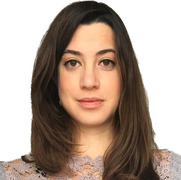
Marianna La Rocca
Dr. La Rocca is assistant professor in applied physics at the Physics Department of Bari University, Italy. Currently, her research focuses on developing and applying complex network-based quantitative methods and machine learning techniques to analyze and relate multimodal neurophysiological data for the study of different neurological diseases. Dr. La Rocca received her doctorate in Physics applied to Neuroscience from Bari University. She devoted great effort in using multimodal neuroimaging techniques and computational methods to study neurodegenerative diseases such as Parkinson’s disease and Alzheimer’s disease. During her PhD, she developed an automatic and quantitative method based on multiplex networks to support the early diagnosis of Alzheimer’s disease, this approach has generated a great scientific and media interest. From 2018-2021, Dr. La Rocca was a Postdoctoral Scholar – Research Associate in the Laboratory of Neuro Imaging at the University of Southern California (USC) where she applied computational and quantitative methods to electrophysiology and imaging data to identify validated biomarkers of epileptogenesis after traumatic brain injury. Dr. La Rocca is continuing to collaborate and be affiliated with USC and is member of different Editorial Boards: Frontiers in Network Physiology, Frontiers in Neurology and Frontiers in Fractal Physiology. Dr. La Rocca was invited as keynote speaker to various international scientific events and was awarded third place in the international challenge for automated prediction of Mild Cognitive Impairment from MRI data. Dr. La Rocca has received different international awards, has published on different high impact factor peer-reviewed journals, and has authored several abstracts, conference papers and book chapters.
Michael G. Rosenblum
Professor Rosenblum, PhD, has been a research scientist and Professor in the Department of Physics and Astronomy, University of Potsdam, Germany, since 1997. His main research areas are nonlinear dynamics, synchronization theory, and time series analysis, with application to biological systems. The most important results include description of phase synchronization of chaotic systems, analysis of complex collective dynamics in large networks of interacting oscillators, development of feedback techniques for control of collective synchrony in neuronal networks (as a model of deep brain stimulation of parkinsonian patients), methods for reconstruction of oscillatory networks from observations, application of these methods to analysis of cardio-respiratory interaction in humans. He studied physics at Moscow Pedagogical University, and went on to work in the Mechanical Engineering Research Institute of the USSR Academy of Sciences, where he was awarded a PhD in physics and mathematics. He was a Humboldt fellow in the Max-Planck research group on nonlinear dynamics, and a visiting scientist at Boston University. He is a co-author (with A. Pikovsky and J. Kurths) of the book “Synchronization: A Universal Concept in Nonlinear Sciences”, Cambridge University Press, 2001 and has published over 100 peer-review publications, including 5 papers in the journals of the Nature Group and 11 papers in Physical Review Letters. Michael Rosenblum served as a member of the Editorial Board of Physical Review E. Since 2014 he is on the Editorial Board of Chaos: Int. J. of Nonlinear Science. He was named an American Physical Society Outstanding Referee for 2015.
Olga Sosnovtseva
Olga Sosnovtseva, PhD, is Professor with Special Duties at the Department of Biomedical Sciences, University of Copenhagen, Denmark. She received her M.S. and PhD degree in physics from Saratov State University (Russia) and worked in the field of nonlinear dynamics and theory of chaos. She received her second PhD degree in Human Biology from the Faculty of Medicine, University of Marburg, German, and worked in the field of biophysics and mathematical physiology. The most important results include development of nano-sensors to study hemeprotein properties and signalling pathways in living cells, development of biophotonics tools to study blood flow regulation in microcirculation, introduction of the concept of synchronization to renal physiology, methods to study interaction of physiological oscillations, development of the first nephro-vascular dynamical model of renal autroregulation. She is a co-author of the book “Synchronization: From Simple to Complex” (Springer, 2009), co-editor of the book “Biosimulation in Biomedical Research, Health Care and Drug Development (Springer, 2012) and has published over 150 peer-review publications. She received Skou fellowship (Denmark) for development of mechanism-based models of intercellular interactions and became Edmund Optics Educational Award finalist. She serves as a panel member of Swedish Research Council for Basic disease mechanisms: Molecular, cellular and biochemical aspects, and for Consolidator Interdisciplinary Grants.
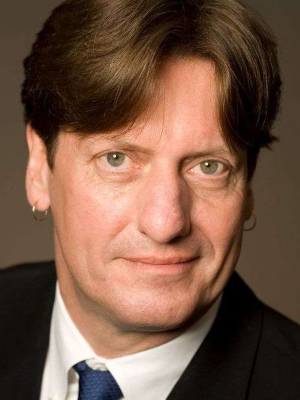
Christopher R. Stephens
Chris Stephens is Full Professor and Director of Data Science at the C3 – Center for Complexity Science at the National University of Mexico (UNAM), the oldest university in the Americas. He possesses a B.A. and an M.A. from The Queen’s College, Oxford and an M.S. and Ph.D in theoretical physics from the University of Maryland. After his doctoral work he was chosen by Nobel Laureate Gerard ‘t Hooft to work with him at the University of Utrecht and was later awarded a prestigious Marie Curie Fellowship by the European Union at the Dublin Institute for Advanced Studies. He has been invited to Visiting Professor positions at many universities, including the Universities of Birmingham, Essex, Limerick and Northumbria as well as being a Senior Visiting Fellow at the Dublin Institute for Advanced Studies. Among his honors are a Leverhulme Professorship from the Leverhulme Trust U.K. and the Jorge Lomnitz Prize of the Mexican Academy of Sciences. He is a member of the editorial boards of Genetic Programming and Evolvable Hardware and Theory in Biosciences. His work is highly interdisciplinary, with over 160 publications in international journals across a wide spectrum of fields, including statistical physics, artificial intelligence, ecology, finance, emerging diseases and medicine. He was a founding partner of Adaptive Technologies Inc. and is currently Founder and Director of Presage Research, both companies dedicated to the application of artificial intelligence research to predictive modelling and optimization in business and industry, including finance, energy, CPG, education, transport and healthcare. He has three patents awarded in predictive analytics/agent-based methodologies. Chris’ main current interest is in using big, deep data to predict the dynamic, adaptive nature of health risk, with a special emphasis on metabolic diseases, particularly obesity, and emerging diseases, such as SARS-Cov-2, with a focus on understanding and modelling them as Complex Adaptive Systems. He has received substantial government and private sector funding to lead large interdisciplinary teams in the development of cutting-edge solutions that make machine learning-based prediction platforms, such as SPECIES (species.conabio.gob.mx) – for the modelling of biodiversity and zoonoses, and Epl-PUMA (covid.c3.unam.mx) for the SARS-Cov-2 pandemia, available to a wide variety of stakeholders and decision makers.
Ruedi Stoop
Professor Stoop studied mathematics at the University of Zurich and completed his PhD in computational physics at the same university in 1991. After obtaining grants from the Swiss National Science Foundation, he became a reader in computer science at the School of Life Sciences, University of Applied Science Northwest Switzerland, and worked in parallel as a scientific advisor and designer for several industrial companies. He became an Associate Professor in physics at the University of Berne in 1997, Adjunct Professor in mathematics at the University of Zurich in 2004 and soon after also in theoretical physics at the Swiss Federal Institute of Technology (ETH). In 2008 he obtained tenure in Neuroscience and Physics at the Institute of Neuroinformatics, run jointly by the University of Zurich and the Swiss Federal Institute of Technology (ETH). His main research directions lie along two related paths: Nonlinear dynamics of biological systems, and principles and applications of biocomputation, seen as domains of mathematics, physics and information science. Prof. Stoop has published a large number of peer reviewed papers documenting a true interdisciplinary approach, from physics over mathematics, engineering, biology to data science. He authored and co-authored books published by Springer, Birkhauser and World Scientific.

Sebastiano Stramaglia
Dr. Stramaglia is an Associate Professor of Applied Physics at the University of Bari, Italy, and External Scientific Member of the Basque Center for Applied Mathematics, Bilbao, Spain. He received his Ph.D. in Statistical Mechanics of random surfaces from the University of Bari in 1995, and the Laurea degree in models of strongly correlated electronic systems in 1991. Since 2001 he is a member of the Center of Excellence “Innovative Technologies for Signal Detection and Processing”, funded by the Italian Ministry for Scientific Research, since 2002 he is a member of the V National Scientific Commission of INFN-Istituto Nazionale di Fisica Nucleare, Italy. He chaired several international events, including “Modeling Migraine: from nonlinear dynamics to clinical neurology” July 2009, Berlin, and “Nonlinear dynamics in electronic systems” July 2013, Bari. Editor of the books “Modelling Biomedical Signals”, World Scientific 2002, and “Emergent Complexity from Nonlinearity, in Physics, Engineering and the Life Sciences”, Springer 2017. He has been visiting scientist at the Institute for Theoretical Physics NORDITA and at the Department of Data Analysis of the University of Gent, Belgium, and visiting professor at Biocruces Health Institute, Bilbao, Spain. Since 2003 he is team leader of the INFN project “Biological applications of Theoretical Physics Methods”. His research focuses on dynamical networks and Granger causality approaches to physiological interactions, in particular he developed a kernel approach for the inference of nonlinear coupling among dynamical systems with applications to brain function and brain-heart interactions.
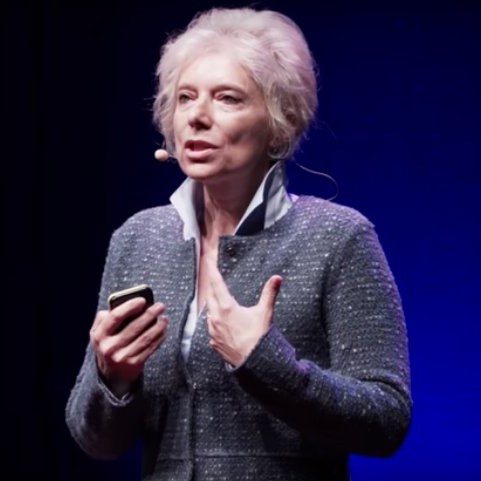
Franca Tecchio
Professor Franca Tecchio is a Senior Researcher at the National Research Council (CNR) in Italy, where she is the Director of the Laboratory of Electrophysiology for Translational Neuroscience (Let’s Laboratory). Her work focuses on methods of brain complexity analysis and therapeutic interventions via precision electroceuticals. Her laboratory utilizes magneto- and electroencephalography (MEG, EEG, EMG) and non-invasive neuromodulation techniques to investigate neuronal electrical activity (TMS, tES, tDCS, tIDS). Dr. Tecchio has seminal contributions to understanding brain function and dynamics through network approaches and to elucidating coupling forms and interactions with other peripheral systems and environment, including brain somatosensory activation and processing in response to body movement; sensory cortex activity in anesthesia; coupling of neural activation and local hemodynamics; cortical responses to auditory stimuli etc. Her work is presented in more than 250 publications. Dr. Tecchio is among the 10 most active Italian researchers in Clinical Neurology (‘La Repubblica Salute’, 2003), and her discoveries are broadly featured in the media, including in ‘Il Venerdi di Repubblica’ (2016), one of the most read weekly magazines in Italy, She appeared as a speaker at the TEDx lecture series in 2016 with more than 42,000 views. She served as the Primary investigator of 32 grant projects, expert evaluator of 18 European funding initiatives (including ERC), and was a Chairwoman of 10 scientific congresses and speaker at numerous international conferences. She is an Associate Editor of the journals Neuroscience and Restorative Neurology.
Robert J. Thomas
Robert Joseph Thomas, M.D., M.M.Sc, is Associate Professor of Medicine, Harvard Medical School & The Division of Pulmonary, Critical Care & Sleep, Beth Israel Deaconess Medical Center, Boston, Massachusetts, USA, His background includes Internal Medicine, Neurology and Sleep Medicine. His research spans mood, cognition (translational and epidemiology), sleep epidemiology, signal analysis in sleep medicine, and sleep-breathing outcomes, and functional imaging of cognition in sleep disorders. He has articulated a new approach to sleep physiology termed “sleep effectiveness”, which is a cross-physiology, networked, integrative approach to characterizing sleep state using cardiopulmonary coupling estimates (patented). His laboratory generates novel approaches and analysis tools for probing several sleep signals – ECG, EEG, respiration and multi-signal integration approaches. He funding sources are the NHLBI, NINDS and the American Sleep Medicine Foundation. He was key in the development of a FDA approved wearable device, the M1/Sleeplmage system, for dynamic sleep quality tracking. He is an acknowledged expert in the area of treatment of central and complex sleep apnea and periodic breathing, utilizing CO2 regulation approaches (patented). He studies brain health in the context of sleep disorders in the USA and South Korea. He directs the AASM accredited clinical sleep center and sieep laboratory, and the sleep medicine training program at the Beth Israel Deaconess Medical Center. I worked in the development and implementation (patented) of auto CPAP algorithms from concept through regulatory submission, which are now in FDA approved products
Alexey Zaikin
Alexey Zaikin has a Chair in Applied Mathematics and Systems Medicine at UCL, holding a shared appointment between Department of Mathematics and Institute for Women’s Health. Currently funded by MRC and CR-UK, he has published more than 140 papers in multidisciplinary areas, especially in the field of complex systems and data analysis, and has long experience of collaboration with wet biologists and clinicians. He studied physics at Moscow State University, and received an MS in Physics with distinction and the Khoklov Award for Excellence in Research. He got his PhD in 1998 in Moscow and Habilitation in 2003 in Potsdam, Germany. In 2008 he joined UCL and worked on analysis of clinical data, to find new oncomarkers for ovarian cancer, to investigate new methods for the analysis of DNA methylation, to study association of sex-steroid hormones with breast cancer risk, to investigate sex-hormone system in BRCA1/2 mutation carriers, to study early detection of colorectal and pancreatic cancer or aberrant regulation of RANKL/OPG in developing breast cancer. In addition to data analysis, he devoted a significant amount of time to the development of new statistical and Al methodologies, including development of algorithms for the detection of network community oncomarkers, parameter estimation methods, Bayesian change point methods for the analysis of longitudinal oncomarkers, or new methods to analyse trends in longitudinal oncomarkers. These works confirmed the power of longitudinal algorithms over the analysis of single time points. Recently he started to utilize parenclitic and developed synolitic network analysis methodology. For the past 5 years, his research interests have included the study of intelligence and consciousness in genetic and neuronastrocyte networks, investigating the role of astrocytes and a generation of Integrated Information.

Stefano Zapperi
Stefano Zapperi is currently professor of theoretical condensed matter physics at the University of Milano and coordinator of the Center for Complexity and Biosystems. He graduated in physics at the University of Rome “La Sapienza” and received his Ph. D. in physics from Boston University. After a postdoctoral position at ESPCI in Paris, he became tenured researcher at INFM at the University Rome and then at the University Modena and Reggio Emilia. He became then senior researcher at CNR-IENI in Milano. He has been invited as visiting scientist or visiting professor in many institutions worldwide, including Cornell University, Aalto University, ENS Paris and Lyon, LMU Munich, FAU Erlangen-Nuremberg, Boston College, Rice University and the Weizmann Institute of Science. Prof. Zapperi in an expert in the statistical physics of complex systems and has contributed to the fields of materials science, biophysics and systems biology. His most notable contributions include the theory of the Barkhausen noise in magnets, the statistical physics of plasticity and fracture, and recent work on the physics of cancer and protein aggregation. He published more than 200 scientific papers. In 2017, he co-authored with Caterina La Porta a book on the “Physics of Cancer” and in 2022 a book on “Crackling Noise”. Prof. Zapperi is the recipient of numerous awards including the Marie Curie Excellence Award, the Humboldt Research Award, the Advanced Grant from the European Research Council. He was elected fellow of the American Physical Society and named Finland Distinguished Professor by the Academy of Finland. He is member of the editorial boards of JSTAT.
